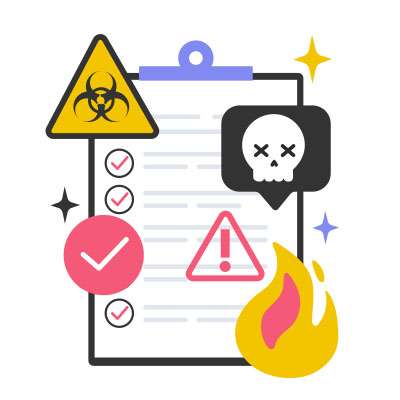Are you paying attention to where you spend your IT dollars and whether or not you are making the most of your budget? It’s imperative to assess your needs before making any major technological purchase, including the goals, challenges, and pain points you are trying to solve. With the right approach, you can increase the value you get out of your IT, especially with the following strategies.
Macro Systems Blog
Any business can benefit from data and use it to enhance its operations. This is especially the case where information technology is involved. By collecting the right metrics, you can better evaluate your business IT’s performance and identify areas for improvement.
Let’s review what some of these metrics should be.
Video conferencing has become more popular in recent years, due in no small part to the COVID-19 pandemic, which forced remote work on most businesses worldwide. However, businesses see the benefits of video conferencing, and it has now cemented itself as a go-to communications solution for all businesses. Listed below are some tips on how to make virtual meetings and video conferencing more productive and more engaging.
The strain on people’s bodies isn’t always taken seriously enough when someone works at a computer. Still, many official studies suggest that desk jobs can have a radical and rather negative effect on the health of individuals. One common ailment is what is called “tech neck.” Tech neck is a term that describes neck pain and damage stemming from looking down at computers or mobile devices for prolonged periods. To avoid tech neck, you can follow these helpful tips listed below.
It’s an unfortunate fact that all businesses will inherently face some type of threats during their operations; that’s inevitable. From cyberattacks to natural disasters to good, old-fashioned accidents, you’re liable to face no small risk. This risk makes a process known as risk mitigation so imperative for all businesses to undergo with some regularity.
Listed below are the aspects of creating and maintaining a dependable risk mitigation strategy.
Business technology is known to be remarkably finicky, especially if you do not have the requisite knowledge to manage and maintain it. After all, there is a reason why you hire an IT department or a managed service provider to handle this role. What happens if your technology fails, though? Do you have a plan in place? What does a plan like this even look like?
It’s always exciting when you can expand your business’ influence with a new location, but that excitement also brings with it all kinds of complications. There’s always something, whether it’s the technology for the new location or the logistics surrounding the opening. Listed below is a look at how you can make sure that technology is not the thing that holds your business back from opening a new location.
Remote work provides numerous benefits for both your employees and your business, as long as you can overcome the challenges associated with implementing it. One of those challenges is productivity, something which employees might struggle with while working remotely. Listed below are four ways your average remote employee might be challenged by their remote work in terms of productivity.
Chances are, your and your employees’ lives are fully permeated with technology, from the very start of the day to the moment you close your eyes to sleep in the evening. That’s just how the world works these days, but there is evidence that this permeation of tech can have some adverse effects on us all. That’s why, as odd as it may sound coming from an IT provider, you may want to occasionally take a moment to step away from technology.
Your network is an imperative part of your business, insofar as it is quite literally what powers your operations and enables you to work productively… at least, most of the time. Alas, there is always the risk of a network bottleneck, or a limited capacity for data to move due to a lack of available bandwidth. So, how can these bottlenecks be avoided?
With technology serving such an indispensable role in modern business the looming threat of disaster is one that always needs to be considered. With so many consequences on the line, it’s imperative that your business is prepared to deal with these disasters effectively and efficiently. Listed below are some tips for properly preparing for your potential disaster recovery needs.
Technology is imperative for many reasons, chief among them your business’ continued efficiency and productivity. The problem with technology, though, is that it will never last forever, and you’ll have to replace it sooner or later. Fortunately, you can delay those costs considerably by implementing a proactive technology management plan, effectively keeping the same technology running longer.
As the boss, you’re in a position to offload many of your business’ responsibilities to your employees. That’s more or less why you have employees in the first place. That being said, there’s more than one way that you can delegate tasks, depending on your personal style of management and the work style of each of your employees.
We’ve been examining the concept of procrastination in recent weeks - why we do it and how it often manifests itself in business processes. For our final few parts, we’ll be focusing on how you can stop procrastinating by utilizing both quicker, short-term tactics and long-term, sustained changes. Listed below are some short-term tactics.
We recently started to explore the concept of procrastination as a means of understanding it better, and potentially, getting better at not doing it. Last time, we touched on a few ways that procrastination can potentially manifest, so it only made sense to us that we would continue pulling that thread and try to help you identify how you tend to procrastinate more specifically.
“Never put off until tomorrow what you can do today.” It’s good advice, as well as some of the easiest and most tempting advice to ignore. Procrastination is one of those things that we all assume we understand, but we wanted to take a bit of time to explore it in greater detail…and figure out how we can all work to resist it.























